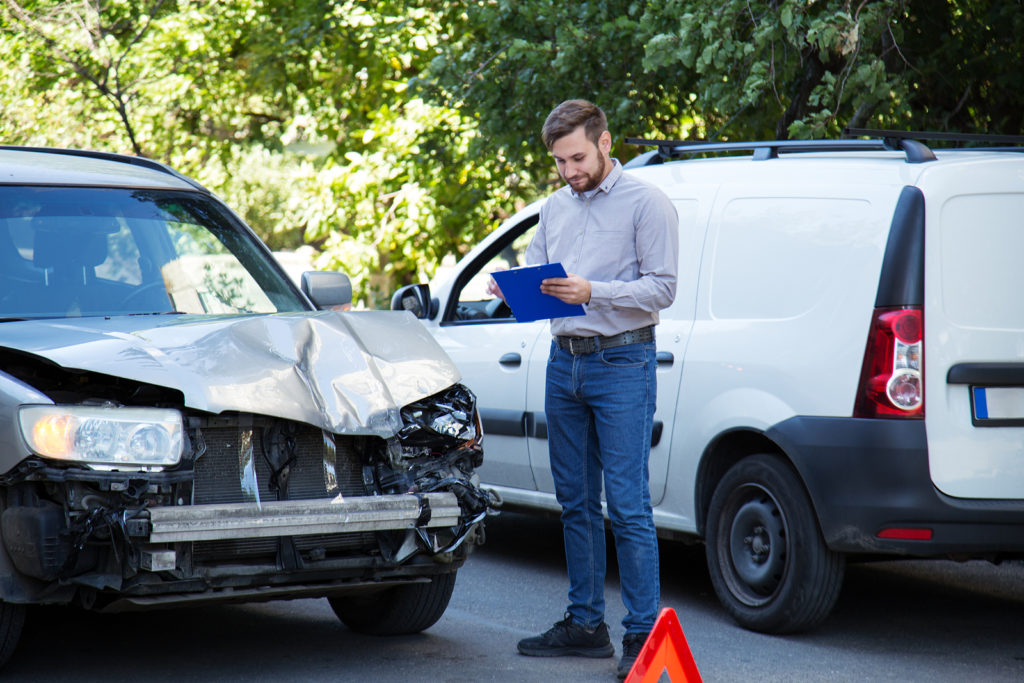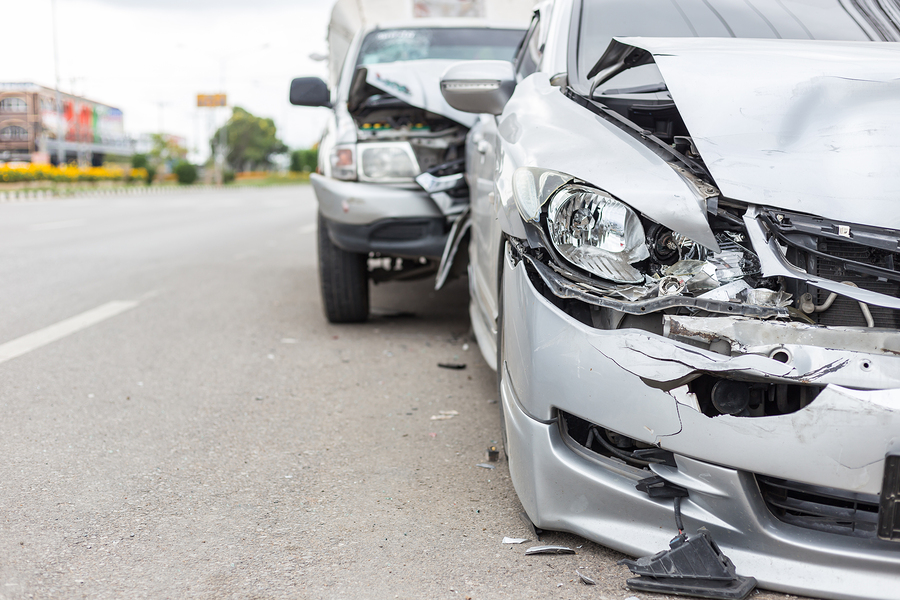Getting into an accident is stressful and costly enough, and between filing your claim, dealing with possible injuries, and trying to get your vehicle back on the road, you may feel overwhelmed.
Another common concern for car accident victims is whether their insurance rates will increase after an accident. Many factors determine if your insurance rate will increase after an accident, including whether you were at fault.
Your insurer likely won't increase your premiums if someone else caused your crash. However, some people experience increases even after a no-fault collision because their insurer made a wrongful determination.
An experienced car accident lawyer can provide evidence that another driver was at fault to protect your rates and get you the coverage you need for your injuries and losses.
Factors That Affect Car Insurance Rates
An insurance company will set the cost of your coverage based on how likely you will cause an accident. For example, compared to experienced drivers, new drivers are more likely to cause an accident, and this assumption helps the insurance company determine how much they want to charge for coverage.
Insurance companies look at several factors to determine the likelihood that you will file a claim against your policy:
- Age and gender: When creating insurance rates, insurance companies often factor in age and gender. Male drivers, especially those under 25, typically pay more for auto insurance premiums than female drivers. Statistically, men typically drive more than women and have more frequent accidents. Compared to female drivers, men also tend to drive more expensive vehicles and pay more for auto insurance coverage. An insurance company's risk assessment considers the experience of a driver, with newer drivers typically having higher insurance premiums than more experienced drivers.
- Location: Your insurance premium may be higher depending on where you live. If you live in a big city with more thefts and collisions than in rural areas, you can expect to pay a higher premium. Because of the increase in traffic in more populated areas, insurance companies assume a higher chance of you getting into a collision.
- Safety features: A driver driving a car with safety features may notice their premium decrease. Insurance companies assume these features will make a driver less likely to get into an accident.
- Driving history: One of the most important factors that can significantly impact the monthly premium you pay for car insurance is your driving history. A history of multiple accidents, traffic violations, moving violations, DUI, and other license suspensions may increase your insurance premium.
- The make and model of your vehicle: Insurers typically charge higher premiums for more expensive cars.
While this may be one of the most common surgical errors, it is also one of the most easily preventable. To avoid leaving a foreign object in a patient's body, surgeons and their staff should go through a materials-used checklist following a surgery's completion.
What May Affect a Car Insurance Rate Increase After an Accident?
After a car accident, the amount your insurance payments may increase will depend on various factors. Understanding how these factors influence how much you pay for car insurance can aid you in knowing what steps you should take to lower your rates.
Several factors can influence the exact amount by which your car insurance payments increase an accident.
These influencing factors include:
At-fault accidents: If you caused or contributed to even a small percentage of your accident, this will almost always raise your insurance rate. Your insurance rate tends to go up after an accident you caused or contributed to because insurers may see you as riskier to insure.
Only after a certain number of years will your insurance company stop charging you for the accident. If you're in an accident where you are not at fault, it should not affect your rates.
Your insurance company: Accidents can happen to anyone, and while you may not deserve punishment for an accident that occurs due to factors beyond your control, some insurance companies simply charge more for accidents than others. For instance, a large, nationwide auto insurance company may have stricter policies on how much an accident will increase your auto insurance than a smaller company.
Regarding accident forgiveness, some larger companies make it difficult for their representatives to assist clients by giving them little control over company-wide mandates they must deal with after an accident.
After getting into a collision, if your premium increases more than you anticipated, you may want to shop around with other companies to see if you can find a lower rate.
The severity and extent of the damages: Following an accident where the damages were small enough that you do not need to use your insurance, you should still inform them of the crash.
Despite reporting the accident, you may not see a corresponding rate increase. On the other hand, serious accidents may result in significant increases in your rates. When you cause a serious accident, resulting in significant injuries and damages, your insurance company may have to pay the maximum policy limits.
Additionally, the more your insurance company has to pay for repairs, the more it may increase your premiums. Even if the cost of repairs and medical expenses exceeds the maximum offered by your policy, the insurance company may still consider the full extent of damage done to any vehicles you hit and injuries sustained by any of its occupants.
Your claims history: When determining your premium price, insurers look at your claims history. Having a lot of claims can indicate that you are a riskier driver and increase the cost of your premium.
The insurance company will also look at any gaps in your coverage history. Too many gaps can indicate that a driver struggles to pay their premium or pay it on time. The insurance company can refuse services or make a driver pay a higher rate if they believe the driver might not pay their premium.
Your driving record: After a crash, you might have to pay higher insurance premiums if you have more than one accident on your record. The insurance company can also refuse to provide continued coverage if you have several past traffic violations or accidents.
You may notice a minor increase in your rates after a single accident, but if you suffer a second accident, it may result in a larger increase. Some companies offer accident forgiveness policies that safeguard drivers from facing penalties if they are in or cause one minor accident.
How Much Do Insurance Rates Go Up After an Accident?
Several factors determine how much your car insurance will increase after an accident, with one of the most important being your coverage provider. Because different insurance companies use different formulas to calculate risk, some companies will drastically increase your premium after an accident, while others are less strict.
Regardless of your coverage provider, expect your rate to rise if you caused an accident that injured another person or damaged their property. After an at-fault accident occurs and goes on your record, some insurance rates can skyrocket by 40 percent.
The exact amount your rates can go up will depend on your accident. For example, if a car accident resulted from drunk or reckless driving, you can face an even higher surcharge for your following policy. Additionally, young drivers and drivers with a long history of accidents may see a more significant hike in their premiums after an accident.
If your insurance company offers accident forgiveness and you have this protection on your policy, you might not see an increase in your rate despite your liability for a crash. After your first at-fault accident under accident forgiveness, your rates will stay the same and save you considerable money. Without accident forgiveness, however, you should expect an increase in your rates if you caused a collision.
Your insurance company will collect this new data from your driving activity, analyze the likelihood of future claims, and adjust your insurance rates accordingly.
No magic tricks will immediately lower your car insurance rates, but safe driving habits and choosing a coverage plan that fits your needs may decrease what you have to pay in auto insurance. If you can prove that you did not cause an accident, you can work with your insurance company to prove that you should not share any legal liability that leads to a rate increase.
You may also want to consider shopping around and considering other providers after an accident to decrease your insurance rate. Compare rates from multiple insurance companies to see if you can find a better deal. Call in and get a personal quote rather than getting a generic quote on a website. A generic quote might fail to consider a recent accident, and your rates will likely increase when you go with a new insurance company.
Do Insurance Costs Increase After a No-Fault Accident?
While driving, if a motorist fails to exercise reasonable care, they can be held legally responsible for any damages or injuries they cause. If you were in an accident and determined not to be at fault for any part of it, your insurance premiums won't increase after filing a claim.
Instead, the at-fault driver's insurance company will be responsible for all accident-related expenses, including vehicle repair or medical costs. Conversely, if you were at fault for an accident, you can expect it to have a greater impact on your insurance rates.
Claims covered under comprehensive insurance, such as a hit-and-run collision or damage sustained while it was legally parked, should not raise your insurance premiums.
Insurance companies cannot increase premiums without just cause; however, if they plan to do so, they must notify the insured in writing. If your insurance company informs you about a change in your policy, you may appeal the decision within 60 days of receiving notice.
How Long Will a Car Accident Stay on Your Record?
Anytime you're involved in an accident and file an insurance claim, the claim goes on your insurance record. The length of time an accident will stay on record and impact your insurance rates will vary depending on the specifics of your situation, including the particular insurance provider and the state where your accident occurred.
Other factors that may influence the length of time that an accident may impact your insurance rates include whether or not you were at fault, the severity of the accident, and if you have a history of accidents or traffic violations.
You can typically expect an accident to stay on your record for three to five years. However, you can expect it to remain on your record for up to ten years for major violations like a DUI or hit-and-run. Once the accident is off your record, you can expect your rates to go down the next time your policy renews.
Seek Help From an Experienced Car Accident Lawyer

When seeking compensation for accident-related expenses and losses, the last thing you should worry about is rising insurance rates. If your insurer threatens to raise your rates after an accident caused by another driver, the right car accident lawyer is ready to handle all legal matters while you focus on recovering physically and mentally.
Injury law firms can prove your car accident liability claim by collecting evidence, submitting a claim on your behalf, speaking directly with all insurance companies, and handling negotiations for you. Get a free consultation with a personal injury attorney, who will provide you with valuable advice and help with your case.



